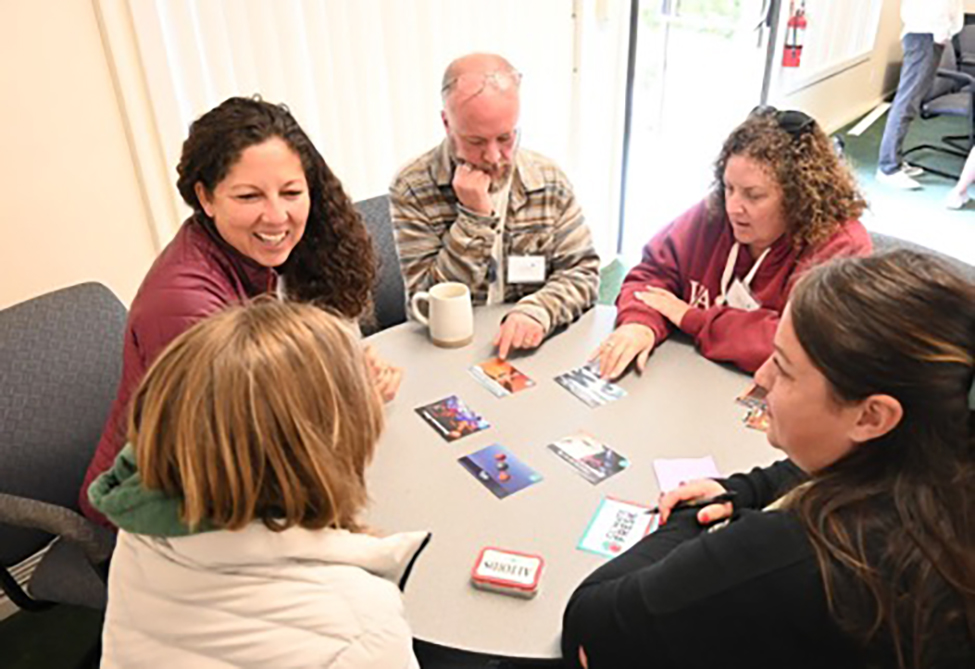In May, UC Santa Barbara’s Gevirtz School hosted a Climate Justice and Sustainability Retreat for cooperating mentor teachers from Santa Barbara Unified School District, teacher candidates from the Teacher Education Program, university faculty, supervisors, and Ph.D. students. The event was part of the NSF supported NASCENT project (New Approaches to Support the Clinical Experience of Novice Teachers), and facilitated by PI Dr. Karin Lohwasser, associate teaching professor at GGSE, and Co-PI Dr. Mark Windschitl, professor at the University of Washington and author of the forthcoming book Teaching Climate Change: Fostering Understanding, Resilience, and a Commitment to Justice (Harvard Ed Press).
The 50 participants explored resources and strategies to consolidate the overwhelming information about climate change into teachable segments. They deepened their understanding by engaging in a “Climate Fresk” activity, creating complex conceptual maps that addressed causes, mechanisms, and solutions to our impending climate crisis. The focus was to provide teachers with a solution-focused approach that would not only align with different content areas, from science and engineering, to social sciences, history, arts, and languages, but could also alleviate some of our students’ climate anxiety. The latter part of the retreat provided teachers and teacher candidates with time to co-plan ways to implement the solution-oriented ideas around climate change into lessons for the upcoming school year.
A second retreat in June focused on mentoring practices and tools for cooperating mentor teachers that the NASCENT project had developed and that can be found at mentorteachers.org. Cooperating mentor teachers participated in activities that focused on ways to engage teacher candidates in professional-roommate conversations, integrate them into a co-planning process, and provide constructive feedback. The teachers enjoyed working together on various ways to productively support the professional growth of future teachers, and ways to adapt instruction together with their mentees, bringing climate issues they had addressed during the first retreat into their classrooms.
GGSE’s Teacher Education Program hopes to continue this important work with cooperating mentor teachers, when new funding becomes available. As a participating teacher wrote, “Any help we can offer to new or prospective teachers could be lifesaving for the profession.”
